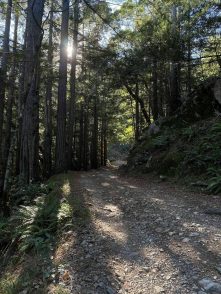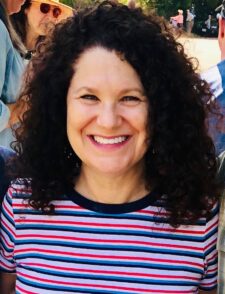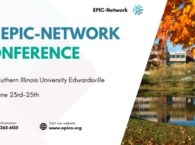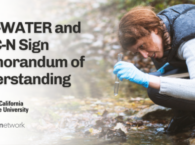Laura Bloch supports the development, growth, and success of EPIC-N and its members

Favorite Place
I feel lucky to live in Northern California where I can enjoy the beauty and the wide variety of activities available in the nearby mountains, lakes, rivers, and ocean. I can bike to Mt. Tam in 10 minutes from my home and feel like I’m away from it all.
What was your first interaction with a school-community partnership project?
My first significant interaction was with California Universities launching programs in partnership with local cities. I worked with my US EPA Office of Research and Development (ORD) colleague, Dr. José Zambrana, to sponsor a regional workshop which provided training on the EPIC model and how to “just start” and featured university and local government partners sharing their experiences with model implementation. From that workshop, six new programs in the state of California emerged, and I was fortunate to work first-hand with those universities and local governments and see how programs were developed and the positive impacts realized by all parties. That successful effort exceeded my expectations! I’ve worked to support the development, growth, and leveraging of EPIC-N ever since.
How did you first learn about EPIC-N?
I learned about the EPIC Model when it was called the “Oregon Model” by the Sustainable City Year Program (SCYP). I connected with the SCYP model developers from the University of Oregon because I recognized its potential and wanted to see what role I could play in bringing it to California schools. My goal was to leverage capacity within universities to further US EPA goals of protecting human health and the environment.
What are some of the top priorities you are working on this year?
This year my priorities are 1) to support efforts that identify the challenges local governments throughout the country tackled and how they were addressed through completed EPIC projects. This will allow us to better support local governments in achieving their sustainability and resilience goals; and 2) to bring the model to public university systems – focusing first on the California State University (CSU) system.
Why do you think the EPIC-Network is important?
The EPIC-Network provides information, resources, and support to new and established EPIC programs and partners. It brings those participating and/or interested in EPIC Programs together providing opportunities for learning and collaboration. EPIC-N also adapts to the needs of its members; and adjusts and improves support over time. This is key to spreading the model. If colleges and universities across the USA, and other countries, had EPIC Programs, we could achieve local, state, regional, and national goals quicker and in ways that have additional benefits to all involved.
What is your favorite part of the EPIC-Network?
Working with people who share the same vision, and the synergy that comes from camaraderie and networking.
What do you want a community, or university, to know about the EPIC-Network?
Universities that adopt EPIC programs, and the local governments and communities they represent, all benefit (in expected, and unexpected, ways) and are better able to achieve their priority goals. I feel that if people really understand how the EPIC model works in practice, they will see why they should adopt it for their region.
Bio
Laura Bloch has worked in the environmental field for more than 20 years on projects and programs with all levels of government, academia, non-profits, and industry. She is currently the Sustainability Adviser for the U.S. Environmental Protection Agency, Region 9 where she works on both regional and national policies and initiatives to enhance sustainability and resiliency. She led U.S. EPA, Region 9 in the design and implementation of its ISO 14001 certified Environmental Management System (EMS), and champions visionary initiatives that minimize environmental impacts of internal operations and programs. For example, she helped develop the national Sustainable Grants Policy based on a successful policy she championed in Region 9. She has also developed and implemented several training programs to enhance sustainability nationally and with other agencies. Laura has been recognized through several national awards including the James W. Craig Pollution Prevention Leadership Award. Dr. Bloch received her Doctorate degree in Environmental Science and Engineering from the University of California, Los Angeles.



